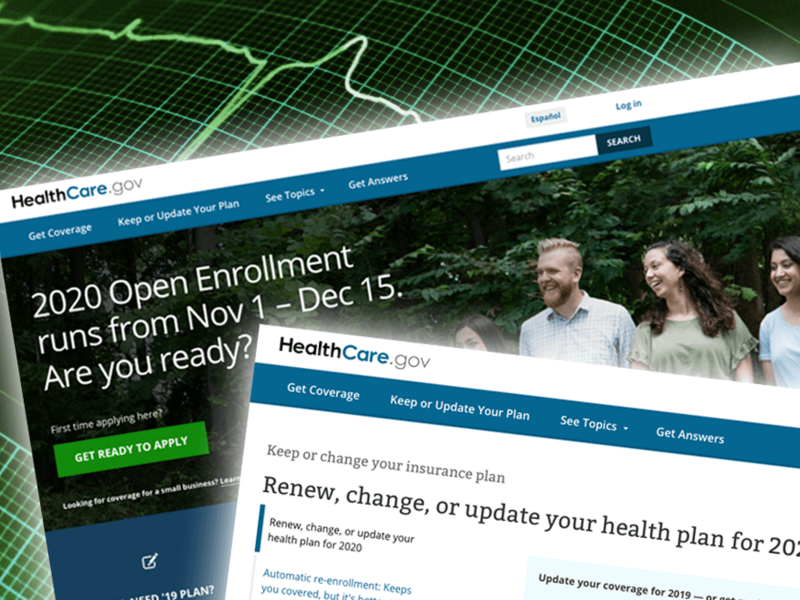 Modern Healthcare Illustration / Getty Images
Modern Healthcare Illustration / Getty Images
Health insurance companies are pushing back against President Joe Biden’s plan to lengthen the annual open enrollment period on the exchanges, according to comments the trade group AHIP made on a proposed regulation
CMS published a draft rule last month that would give consumers 30 extra days to sign up and establish monthly special enrollment periods for low-income people to enroll in subsidized low-cost or no-cost health plans. Comments on the regulation closed Wednesday.
Consumer groups and providers heralded Biden’s proposal, saying it would increase the number of insured Americans, reduce coverage gaps and allow people to switch to less expensive plans if they are automatically renewed in a policies that became more costly.
But insurers counter that a longer sign-up window would bring sicker policyholders, costing them money and potentially destabilizing the exchanges.
“We believe that a targeted [special enrollment period] for consumers who automatically re-enroll and experience an increase in premium is a better alternative,” AHIP wrote in a letter to CMS.
After a rocky start marred by financial losses, legal challenges and general uncertainty about the exchanges, insurers are expanding their exchange business. Relaxing enrollment rules could threaten the newfound stability in this market if policyholders switch plans during the year or delay enrollment until they have a health condition.
Insurers raised the specter of adverse selection if enrollment were more flexible, especially if CMS were to allow low-income people a monthly opportunity to sign up, AHIP argues in its comments. Higher premiums and out-of-pocket costs, narrower provider networks and fewer plan choices would be the consequence, the insurance lobbying group maintains.
“We are particularly concerned about adverse selection…[and] the opportunity for providers to steer consumers to enroll in a specific plan or network at the point of care,” AHIP wrote. “Issuers have already experienced significant churn among subsidized populations with enrollees seeking access to certain providers or centers of excellence.”
Several states have extended open enrollment beyond the federal deadline, and there is no evidence that those who signed up were sicker than those in states with shorter enrollment campaigns.
Drugmakers and hospitals support the proposed rule on exchange enrollment, especially the provisions for low-income people.
“Uninsured individuals are disproportionately from disadvantaged communities and are often unaware of their eligibility for premium subsidies under the ACA. This [special enrollment period] would increase the opportunities for individuals from disadvantaged backgrounds to apply for affordable healthcare,” the Pharmaceutical Research and Manufacturers of America wrote in a letter.
Hospitals also encouraged the Biden administration to rein in short-term, limited-duration health plans and health sharing ministries in future rulemaking.
“These ‘plans’ provide inadequate access to care and can subject consumers to greater out-of-pocket spending when illness or injury occur. Hospitals and health systems report that patients enrolled in these products often find themselves without coverage for emergency services, cancer care and hospital stays, among other services,” the American Hospital Association wrote.
Hpspitals also urged the federal government to address “out-of-control” cost-sharing. “Increasingly, we are hearing reports of commercial health insurers implementing confusing and convoluted policies such as mid-year coverage changes and complex cost-sharing and network structures that leave patients unsure of whether providers are in-network or how much they may have to pay,” AHA wrote.
Source link : https://www.modernhealthcare.com/insurance/insurers-oppose-longer-marketplace-open-enrollment-period











